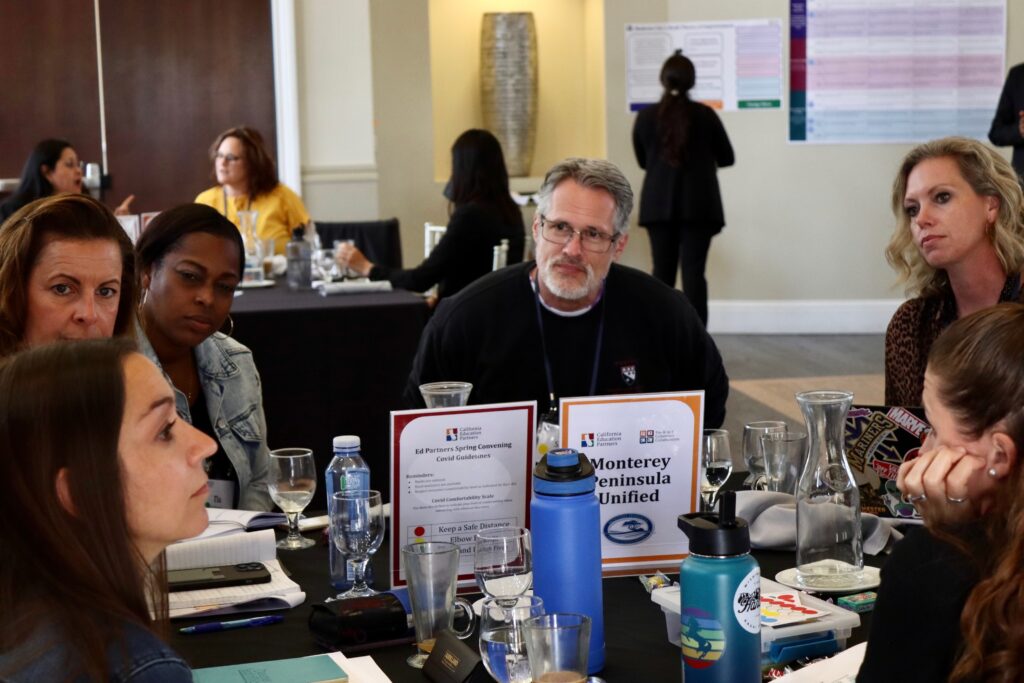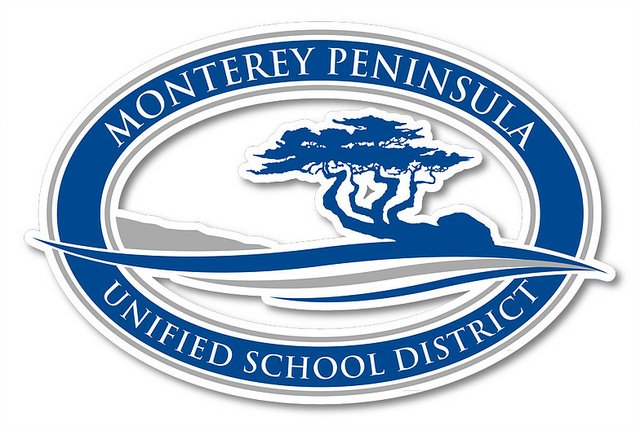

In Monterey Peninsula Unified School District (MPUSD), play has purpose. Preschool and transitional kindergarten (TK) teachers in MPUSD have embraced story-, play- and experience-based classroom activities that allow even the youngest learners to bring their existing skills and assets to their learning experiences.
“Creating joyful learning and authentic experiences for our students is a no-brainer,” Cresta McIntosh, Monterey Peninsula associate superintendent said.
Monterey Peninsula’s preschool classrooms shape the learning experience students will build on for years to come. Recognizing the importance of a strong foundation, teachers create a preschool experience with a joyful orientation, experiential learning in mind and lessons designed to engage early learners. From this point MPUSD focuses on coherence, which treats each year as a critical building block and an opportunity to build students’ confidence and independence.
MPUSD leaders credit the work they’ve done with California Education Partners and the 25-district Preschool to 3rd Grade Coherence Collaboration for enabling them to implement changes that are improving the school system across the board. “Through our work together, we’ve developed a really thoughtful system of support that has improved our preschool through third grade coherence, but has also ingrained practices of learning, cross-level collaboration and continuous improvement that will help our work throughout the district,” reflected McIntosh.
In Monterey Peninsula, teachers collaborate across grade levels in pursuit of more vertical articulation, an approach that ensures teachers reinforce the same core concepts and skills every year so students develop knowledge and understanding over time. In preschool and TK, teachers introduce these concepts using developmentally and culturally appropriate instruction, meeting students where they are and igniting their curiosity for learning.
Holly McKrill, an early learning teacher in MPUSD, said being empowered to cater to their students’ interests and abilities makes teachers feel more connected to their students. “Teachers are excited to incorporate student interest into their curriculum–both in the topics they teach and their learning approaches,” she said. “Students feel more engaged when they have variability and choice in what they’re learning, and when they receive teaching that’s culturally responsive to their unique circumstances and interests.”
Teachers are equipped to adapt not only their curriculum, but also their classrooms to be accessible and inclusive to students with a range of learning needs. Play spaces are designed thoughtfully to welcome students with disabilities. Even evaluation protocols in MPUSD are built with the student at the center.
“We’re working to elevate student independence and create conditions for them to share with us what they know,” said McIntosh. “We’re embracing anecdotal evidence that gives us a full picture of the student experience, moving away from just checking off boxes when a learning unit is completed.”
The district is building teachers’ skills to observe students engaging in an activity, understand which strategies they are using to solve problems, and determine how to shape classroom instruction moving forward. “We are shifting assessment to be more about what we are learning about students and how we can make better entry points to support them.” McIntosh said.
Monterey Peninsula educators understand that centering students means honoring and embracing their full lives, so forging strong connections with students’ families and communities is critical. McIntosh noted that in a district where nearly half the students participate in the free and reduced lunch program and about 70% of families are economically disadvantaged, outreach to families at the outset of the school experience ensures every student starts off on solid footing.
“Our outreach to families of students in our district is essential, especially at this stage, because early learning is at the epicenter of equity and sets the path for the high quality learning experiences that help our students thrive,” McIntosh said. MPUSD uses this outreach to ensure families know about the full range of educational resources and opportunities for classroom involvement available to them, ultimately fostering shared ownership of their children’s experience in the school system.
The student-centered model at work in MPUSD is just one part of their equation for success. The other essential element is an approach to coherence that values educators’ perspectives–especially early education experts. “There’s a lot to learn from preschool teachers,” McKrill said. “They’ve long been important players in our system, and as they gain further credentials to match the important role they play for students, the district is acknowledging that service through improved professional development.”
MPUSD brought preschool and TK teachers into their professional development processes, incorporating their insights on early development and play-based learning models that can be effectively adapted from grade-to-grade–building coherence along the way. That is already having an impact in the classroom, where some of the most foundational elements of Monterey Peninsula’s student-centered approach come from preschool and TK concepts of student choice, joyful learning and purposeful play.
“Our preschool teachers tell me all the time just how valued they feel and how important it is to participate in leadership teams and have their voices be heard and recognized,” added McKrill.
